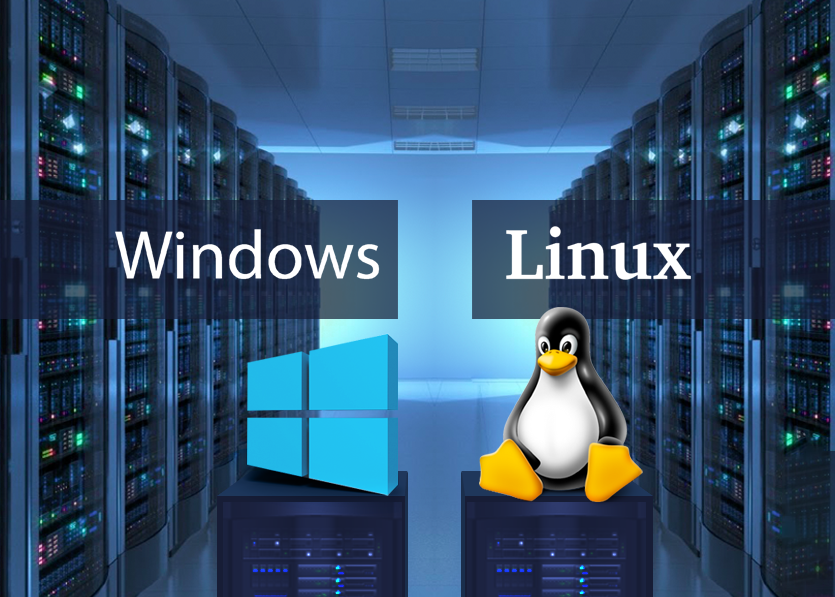Navigating the VPS Landscape: Linux vs. Windows
The world of web hosting can be overwhelming, especially when it comes to choosing the right Virtual Private Server (VPS) solution. For those who’ve outgrown shared hosting but aren’t quite ready for a dedicated server, VPS offers a compelling middle ground. But a crucial first step is deciding: Linux VPS or Windows VPS? This article dives into the key differences between these two popular options to help you make an informed decision.
Understanding VPS Hosting:
Before delving into the specifics of Linux and Windows VPS, let’s establish a common ground. VPS hosting carves a physical server into multiple virtual machines, each functioning as an independent server with dedicated resources like CPU, RAM, and storage. This offers greater control, security, and performance compared to share hosting, where you share resources with other websites.
The Operating System Divide: Linux vs. Windows
The fundamental difference between Linux VPS Server and Windows VPS lies in the operating system powering the virtual server. This choice significantly impacts factors like cost, security, ease of use, and software compatibility.
- Linux VPS: Embraces the free and open-source Linux operating system, renowned for its stability, security, and customizability. Popular Linux distributions for VPS hosting include Ubuntu, CentOS, and Debian.
- Windows VPS: Leverages Microsoft Windows Server, a paid, proprietary operating system offering a familiar interface for Windows users and seamless integration with other Microsoft products.
Cost Considerations:
- Linux VPS: Generally the more budget-friendly option due to the free and open-source nature of Linux. There are no licensing fees associated with using Linux itself.
- Windows VPS: Typically comes at a higher cost. Microsoft Windows Server licensing fees are factored into the pricing structure of Windows VPS plans.
Security Standpoint:
- Linux VPS: Often considered more secure by default. The open-source nature of Linux allows the developer community to scrutinize the code, leading to faster identification and patching of vulnerabilities.
- Windows VPS: Can be secure with proper configuration and maintenance. However, its widespread use makes it a bigger target for attackers, potentially requiring more vigilance on the security front.
Ease of Use:
- Linux VPS: May require more technical knowledge to manage and configure, especially for users unfamiliar with the command-line interface (CLI) used in Linux administration.
- Windows VPS: Offers a more user-friendly interface for those accustomed to the Windows operating system. Graphical tools and a more intuitive interface can simplify management for Windows users.
Software Compatibility:
- Linux VPS: Shines with open-source web development tools and applications. Many popular web applications like WordPress, PHP, and MySQL are built for Linux environments.
- Windows VPS: Excel at running Microsoft-based technologies like ASP.NET and SQL Server. They cater well to businesses heavily reliant on these Microsoft products.
Choosing the Right VPS for You:
The optimal choice between Linux VPS and VPS Server Windows hinges on your specific needs:
- Technical Expertise: If you’re comfortable with the command line and open-source software, Linux VPS offers a cost-effective and secure option.
- Software Requirements: If your website or application relies on Microsoft technologies like ASP.NET, Windows VPS is the clear choice for compatibility.
- Budget: For budget-conscious users, Linux VPS is generally more affordable.
- User Interface: If you’re a Windows user and prefer a familiar graphical interface, Windows VPS might be a better fit for managing the server.
Beyond the Basics: Additional Considerations
While cost, security, ease of use, and software compatibility are the core differentiators, here are some additional factors to ponder:
- Control Panel: Both Linux and Windows VPS providers typically offer control panels like cPanel or Plesk for server management. These user-friendly interfaces simplify tasks like user creation, domain management, and software installation.
- Scalability: Look for VPS plans that allow you to easily scale resources up or down as your website or application grows. This ensures you only pay for the resources you actually use.
- Server Location: The physical location of the server can impact website performance. Choose a server location geographically close to your target audience for faster loading times.
- Customer Support: Reliable and responsive customer support is crucial. Research the provider’s reputation for customer service before making a decision.
In Conclusion: Both Linux VPS and Windows VPS provide robust solutions for web hosting needs. By carefully evaluating your technical expertise, software requirements, budget, and future growth projections, you can make an informed decision and select the VPS option that best empowers your online presence.

